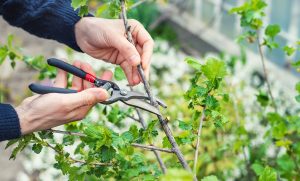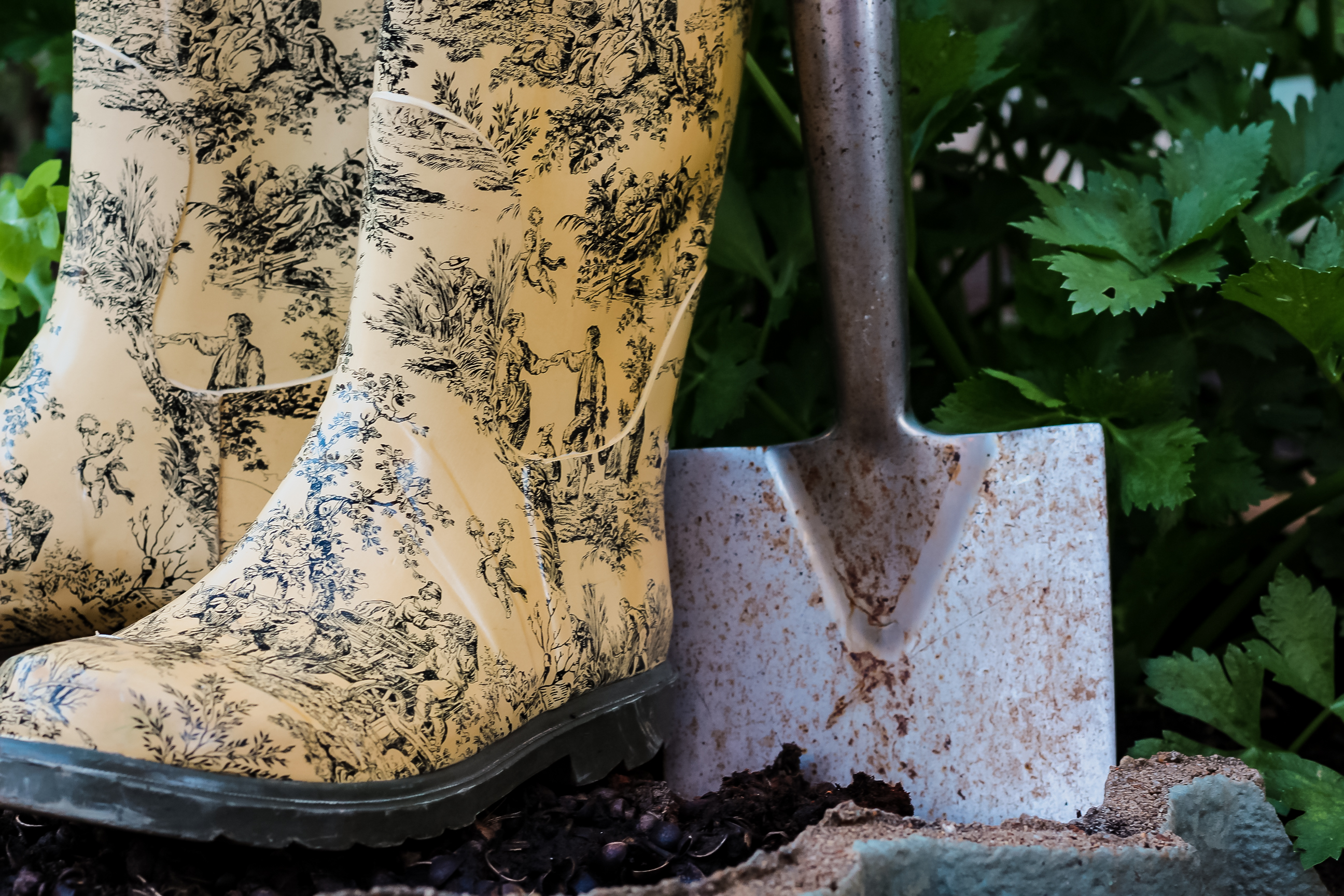Right across our country, July is a very important month in the garden. The shortest day has passed and as the days slowly become longer, the earth begins to warm, and plants begin to respond to nature’s change.
Grow it at Home
 With the changes the world has experienced, many have re-evaluated their lifestyles. There has been a resurgence of interest in gardening with much more time being spent at home. Growing fresh and healthy food at home has now become very popular. The tasks completed this month will greatly influence the season of supply and freshness to come for the times ahead.
With the changes the world has experienced, many have re-evaluated their lifestyles. There has been a resurgence of interest in gardening with much more time being spent at home. Growing fresh and healthy food at home has now become very popular. The tasks completed this month will greatly influence the season of supply and freshness to come for the times ahead.
Sleeping Plants
For many plants, winter is a season of rest. Deciduous plants have shed their leaves in cooler regions. The winter landscape is filled with bared stemmed sleeping plants waiting for the warmth of spring. This is the perfect time to plant deciduous fruiting trees, berries, small fruits, and vines to add to the home food forest. Your local garden retail experts have a huge range available for winter planting and will be able to advise on the best varieties for your needs.
Prepare to Grow Goodness
Preparing the soil before planting is so important to grow the healthiest fruiting plants to produce the tastiest, goodness filled harvests. Rocky Point ActivGrow Soil Improver is the no fuss way to prepare the areas for new fruiting plants. Dig the hole about twice the size needed for the plant. Dig some ActivGrow into the hole. Plant and backfill with a mixture of 50% of the existing soil that has been dug from the hole and 50% Rocky Point ActivGrow. Always mound the plant to ensure good drainage and do not bury grafted trees with the graft below the ground level. Because most newly purchased deciduous trees would have the roots trimmed, use a seaweed extract plant tonic to encourage strong root growth and minimise transplant shock. Add a generous amounts of quality organic fertiliser such as Rocky Point’s ActivGrow Fertiliser Pellets or Poultry Manure Fertiliser Pellets
Water the plants well and mulch around the newly planted fruiting trees with our Rocky Point Sugar Cane, Lucerne or Pea Straw mulches. This will help to retain moisture and have the plants ready for a bumper season of growth.
In the Veggie Patch
 With the massive interest in food grown at home, many fantastic harvests are being enjoyed from the Veggie Patch. Now is the time for replanting the plots for the harvests ahead.
With the massive interest in food grown at home, many fantastic harvests are being enjoyed from the Veggie Patch. Now is the time for replanting the plots for the harvests ahead.
Prepare your plot before planting by digging in plenty of compost such as Rocky Point ActivGrow and/or Rocky Point Cow Manure Plus with a generous application of Blood & Bone Fertiliser Pellets.
Tropical, subtropical and arid regions continue to enjoy lots of growth in the edible garden. Asian Greens, Beetroot, Broccoli, Cabbage, Cauliflower, Chives, Celery, Kale, Leek, Lettuce, Radish, Rocket, Silverbeet, Spring Onion, Tomato and Strawberry plants can all be planted now. Most herbs can also be planted now including Basil (in frost free areas), Coriander, Thyme, Marjoram, Oregano, Dill and Mint.
Cooler regions are able to plant Artichoke, Broad Beans, Brussels Sprouts, Coriander, Spinach, Garlic, Kale, Lettuce, Mint, Onion, Radish, Silverbeet and Snow Peas.
In suitable regions, Asparagus and Rhubarb crowns can be planted now and provide years of tasty harvests. Certified Seed Potatoes are available and can be planted once the risk of frosts has passed.
Once planting of new vegetable plants is complete, mulch the vegetable beds. Rocky Point Sugar Cane Mulch, Lucerne Mulch or Pea Straw Mulch are all perfect mulches for around your vegetable and herb plants. They are natural, will help to retain moisture, suppress weeds and have your patch looking fantastic.
Apply Rocky Point Poultry Manure Pellets to the garden beds every two weeks to ensure lots of healthy growth.
Winter is Rose Time

Roses are the world’s most popular flowering plant but certainly do not look attractive when dormant in winter. These thorny stems will transform into the most wonderful displays of colour and fragrance as they wake from their winter slumber. An excellent selection of Hybrid Tea, Floribunda, Old Fashion, David Austin, Flower Carpet, Miniature, Climbing, Ground Cover, Standard and Weeping roses are available for planting now.
Popular Varieties of Bush Roses
Hybrid Tea roses grow from 1 to 2 metres in height with large double flowers on single stems. Most are very fragrant.
Floribunda roses grow 1 to 1.5 metres in height with many clusters of flowers on one stem.
Climbers or pillar roses grow 2 metres plus in height. Some have hybrid tea type flowers, others floribunda clusters.
Old Fashioned roses are often called species roses. Some grow to 4 metres in height, many are fragrant and have colourful hips in winter.
English roses (modern shrub) are bred to retain the best Old Fashioned rose traits of fragrance and flower form, but benefit from modern breeding to be disease resistant and continuous flowering. They grow to a height of 1 to 2 metres. David Austin roses are popular English roses.
Miniature roses grow to a height of 15 to 50cm, are compact bushes, do not require lots of pruning and are great in patio pots and tubs.
Standard Roses
 Standard Roses are selected bush roses that are grafted onto a taller stem. This allows the rose to grow at the top of this stem rather than from ground level. Standard Roses are fantastic to add height and focal points to gardens. These can be planted as a single feature or planted in a row for a hedging effect. Standard Roses are also great in feature pots and are a stunning highlight for entrances and patio areas.
Standard Roses are selected bush roses that are grafted onto a taller stem. This allows the rose to grow at the top of this stem rather than from ground level. Standard Roses are fantastic to add height and focal points to gardens. These can be planted as a single feature or planted in a row for a hedging effect. Standard Roses are also great in feature pots and are a stunning highlight for entrances and patio areas.
Weeping Roses
Weeping Roses are also wonderful features in the garden. These are climbing or rambling roses that are grafted onto a taller stem and will cascade down with a stunning display of flowers.
Planting Roses
Roses like a sunny, open position in the garden and love a rich and well-drained soil. Preparing the soil prior to planting by digging in Rocky Point ActivGrow Soil Improver will give your new roses the best start possible. Once new roses are planted, fertilise the plants with a premium organic fertiliser such as ActivGrow Fertiliser Pellets and mulch the bed with a quality garden mulch. Rocky Point are committed to producing the very best gardening products for the very best results. Our range of mulches will not only ensure that garden beds look fabulous but will help to retain moisture and suppress weeds.
Winter Pruning
 July is the month to get the pruners out. It is the perfect time to prune back, tidy up and shape many trees, shrubs, perennials, and hedges in the garden. If a major cut back of trees or shrubs that have grown too large is required, even if it means forfeiting flowers or fruit for a year, July is the time to achieve this. Avoid pruning evergreen plants that will flower in the spring and wait until after flowering happens before pruning these spring flowering plants.
July is the month to get the pruners out. It is the perfect time to prune back, tidy up and shape many trees, shrubs, perennials, and hedges in the garden. If a major cut back of trees or shrubs that have grown too large is required, even if it means forfeiting flowers or fruit for a year, July is the time to achieve this. Avoid pruning evergreen plants that will flower in the spring and wait until after flowering happens before pruning these spring flowering plants.
Pruning Deciduous Fruiting Plants
July is the time to prune most deciduous fruiting plants. Avoid pruning Cherries, Apricots and Kiwi Fruit vines until the warmer weather as these tend to bleed if pruned through winter.
July is also an important time of pruning in warmer areas of the country. Fruiting trees in warmer climates require more regular pruning as they grow quickly and produce lots of fruit over a long period. For the best local advice visit your local garden centre or garden retailer.
Rose Pruning
July is a great month for planting new roses but is also the time to give your existing roses some attention for a fabulous display of colour and fragrance over the flowering season. July is the best time to prune your roses. In really cold frosty regions, you may need to wait until early August.
The task of rose pruning can be daunting, but roses are very forgiving and will bounce back beautifully. Winter rose pruning is important as it helps to reduce disease, improve air circulation, allows more light in and encourages good strong new growth. This allows the plant to put the energy into producing an abundance of beautiful blooms as the flowering time arrives. Once Pruning is complete, give the pruned rose a good spray with a horticultural oil such as All Seasons Oil or Pest Oil to control pests that are hiding ready for the new growth to appear. It will not be long until the fresh new growth appears, and you will be rewarded with an abundance of beautiful fragrant blooms to delight the senses.
Prune the Hedges
 Most hedging and screening plants respond very well to a good July pruning. In no time at all they will be covered in lush new growth.
Most hedging and screening plants respond very well to a good July pruning. In no time at all they will be covered in lush new growth.
Once pruning is complete, fertilise with a generous application of ActivGrow Fertiliser Pellets to encourage lots of fresh new growth and flowers for the season ahead.
July is a busy month in the garden to keep growing and to continue to achieve great things.
Happy Gardening!
 Get even more great gardening tips in our Better Earth Secrets magazine.
Get even more great gardening tips in our Better Earth Secrets magazine.
Get your FREE copy when you subscribe below;
[contact-form-7 id="7606" title="Better Earth Program Signup Form" html_id="better-earth-program-signup-form" html_class="better-earth-program-signup-form"]
_MEB.png?width=842&height=596&name=RP_HorizontalColour(R)_MEB.png)



